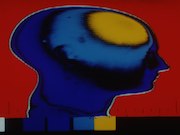No significant benefit for patients with fibromyalgia, pain; conflicting results for painful conditions
MONDAY, Feb. 12, 2018 (HealthDay News) — Evidence for the effectiveness of cranial electrical stimulation (CES) is sparse, according to a review published online Feb. 13 in the Annals of Internal Medicine.
Paul G. Shekelle, M.D., Ph.D., from the West Los Angeles Veterans Affairs Medical Center, and colleagues reviewed evidence relating to the benefits and harms of CES for adults with chronic painful conditions, depression, anxiety, and insomnia. Data were included for 28 articles from 26 randomized trials that met the eligibility criteria.
The researchers found that the two trials that compared CES with usual care were small, and no statistically significant benefit was reported in pain or anxiety outcomes among those with fibromyalgia or anxiety, respectively. Conflicting results were observed in 14 trials with sham or placebo controls involving patients with painful conditions such as headache, neuromuscular pain, or musculoskeletal pain. In patients with anxiety and depression, low-strength evidence of a possible modest benefit was seen in four trials conducted more than 40 years ago and in one recent trial compared with sham treatments. Inconclusive or conflicting results were seen in trials with patients with insomnia (two trials), insomnia and anxiety (one trial), or depression (three trials).
“Evidence is insufficient that CES has clinically important effects on fibromyalgia, headache, neuromusculoskeletal pain, degenerative joint pain, depression, or insomnia; low-strength evidence suggests modest benefit in patients with anxiety and depression,” the authors write.
Copyright © 2018 HealthDay. All rights reserved.








